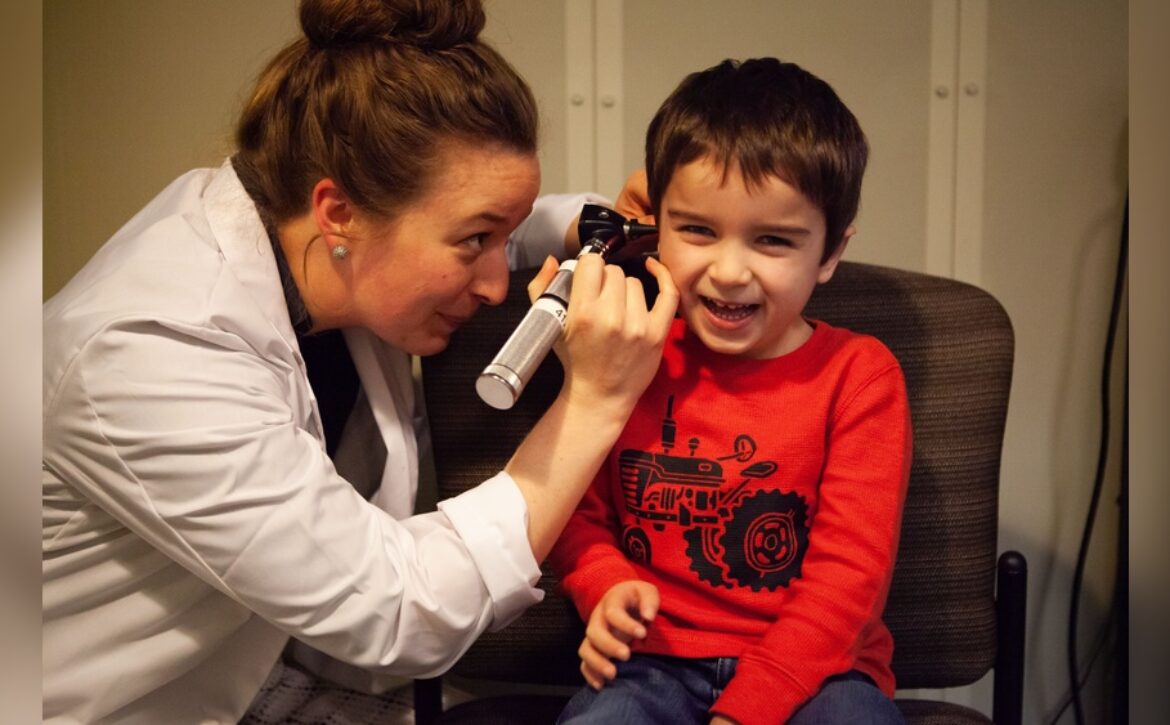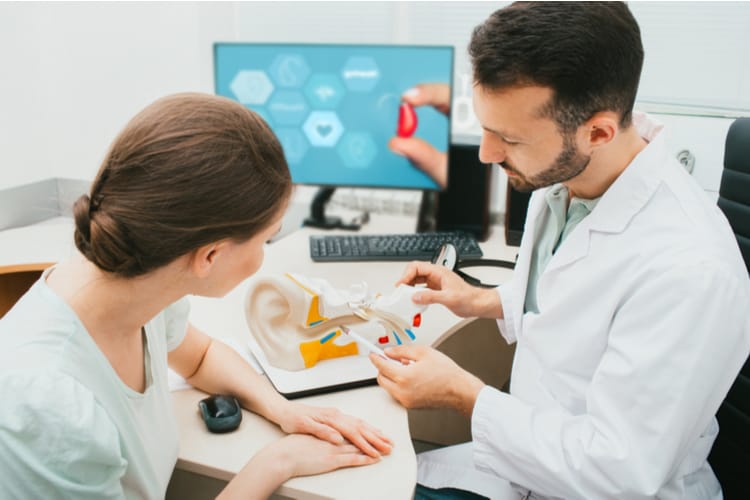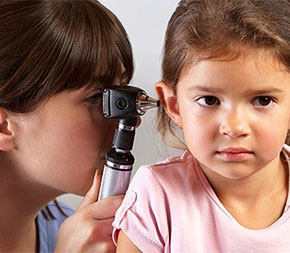
How to Become a Audiology Expert: Step-by-Step Guide
Are you fascinated by the world of sound and how it impacts our lives? Do you find yourself intrigued by the science behind hearing and balance?
If so, a career in audiology might be your perfect path. Imagine waking up every day knowing you have the power to help others hear the laughter of their loved ones or enjoy their favorite music again. This guide is your ticket to understanding how you can turn this passion into a rewarding profession.
We’ll break down the steps, qualifications, and insights you need to make this dream a reality. Dive in and discover how you can transform your curiosity into a meaningful career that not only changes lives but also brings you immense satisfaction and growth.
Educational Requirements
Becoming an audiologist requires specific educational qualifications. Understanding these requirements is crucial for aspiring audiologists. This ensures a successful career in this vital field.
Degree Options
Audiologists need a doctoral degree in audiology (Au.D.). This program typically lasts four years after completing a bachelor’s degree. Common undergraduate majors include communication sciences and disorders. Some may choose psychology or biology as their major. These fields provide a solid foundation for further studies.
While pursuing an Au.D., students learn about hearing and balance disorders. The curriculum covers diagnostics and treatment options. Practical experience is also a key component of these programs. Internships and clinical practicum provide hands-on learning opportunities.
Accredited Programs
Accreditation is essential when selecting an audiology program. Accredited programs meet high educational standards. They ensure students receive quality training and education. The Accreditation Commission for Audiology Education (ACAE) is a recognized accreditor. The Council on Academic Accreditation in Audiology and Speech-Language Pathology (CAA) is another accrediting body. Both organizations offer a list of accredited programs on their websites.
Choosing an accredited program can impact future licensure. Graduating from an accredited program is often a requirement for state licensing. It also enhances job prospects, showing employers a candidate’s high-quality education. Always verify a program’s accreditation status before applying.

Certification Process
Embarking on a career in audiology is a rewarding journey, but it requires dedication to the certification process. Understanding the certification and licensure requirements is crucial. Each step ensures you meet the standards to provide quality care.
National Certification
National certification is a fundamental milestone in your audiology career. It’s a seal of approval that shows you have the necessary skills and knowledge. Many audiologists pursue certification through the American Speech-Language-Hearing Association (ASHA).
ASHA offers the Certificate of Clinical Competence in Audiology (CCC-A). To earn this, you need a doctoral degree in audiology and must pass a rigorous exam. This certification not only boosts your credibility but also opens doors to more job opportunities.
Imagine holding that certificate in your hand, knowing your hard work and studies have paid off. It’s a testament to your dedication. Have you considered what this certification could mean for your career trajectory?
State Licensure
After obtaining national certification, the next step is securing state licensure. Each state has its own requirements and procedures. This ensures audiologists meet local standards and regulations.
Some states might require additional exams or supervised work hours. Navigating these requirements can be challenging, but they are essential for practicing legally. It’s important to research your state’s specific licensure needs well in advance.
Think about the impact of practicing without the proper licensure. It could jeopardize your career and your clients’ trust. Are you prepared to meet the state’s requirements and start your practice confidently?
The certification process is a journey of learning and proving your capabilities. Each step builds your expertise and confidence. Dive into this process with passion and commitment. Your future as an audiologist awaits.
Essential Skills
Becoming an audiologist involves more than just understanding the science of hearing. It’s about mastering a set of essential skills that will help you connect with patients and use technology effectively. These skills can transform your practice and elevate your career. Have you ever wondered what it really takes to excel in audiology? Let’s dive into the core skills that make a difference.
Communication Skills
Communication is the bridge between you and your patients. Clear and compassionate communication helps build trust and ensures that your patients feel understood. Whether you’re explaining a hearing test or discussing treatment options, your ability to convey information effectively is crucial.
Listening is as important as speaking. You need to understand your patients’ concerns and experiences. This helps you tailor your approach to meet their needs. Imagine a patient who is anxious about hearing loss; your empathetic response can ease their worries and encourage them to engage in treatment.
Have you ever faced a challenging conversation? Developing strong communication skills can turn these moments into opportunities for growth and learning. Practice active listening and adjust your communication style to each patient’s unique situation.
Technical Proficiency
Technical proficiency is the backbone of audiology. You must be skilled in using various audiological equipment and software. This includes audiometers, hearing aids, and diagnostic tools. Your ability to operate these technologies accurately affects the quality of care you provide.
Staying updated with technological advancements is essential. New tools and techniques are constantly emerging. Are you prepared to adapt to these changes? Continuous learning and professional development can enhance your technical skills significantly.
Hands-on experience can deepen your understanding. Engage in workshops and training sessions that focus on technical skills. You will gain confidence and improve your ability to diagnose and treat hearing disorders effectively.
What steps will you take to enhance these essential skills? Consider setting specific goals for communication and technical proficiency. Embrace challenges as opportunities to refine your abilities and contribute to the well-being of your patients.

Clinical Experience
Clinical experience is a vital part of becoming an audiologist. It bridges the gap between theoretical knowledge and practical skills. Through hands-on experience, you not only refine your abilities but also gain insights into real-world challenges.
Internship Opportunities
Internship opportunities are your gateway to the clinical world of audiology. These placements offer you a chance to work alongside experienced professionals. You will observe patient interactions, learn diagnostic procedures, and understand treatment protocols.
Internships often expose you to various settings such as hospitals, private clinics, or research facilities. This variety allows you to see different aspects of audiology in action. You may even discover a specific area of interest to pursue further.
Consider reaching out to local audiology centers for internship openings. Networking with professionals can lead to unexpected opportunities. What skills do you hope to gain during your internship?
Supervised Practice
Supervised practice is essential for building confidence and competence. Working under the guidance of seasoned audiologists helps you apply classroom knowledge to real-life scenarios. This mentorship is invaluable as it provides immediate feedback and support.
During supervised practice, you will handle equipment, perform hearing tests, and assist in patient care. Each interaction teaches you something new, enhancing your problem-solving skills. Your ability to adapt and respond to different situations will grow significantly.
Make the most of your supervised practice by asking questions and seeking advice. Remember, every experience adds to your professional growth. How will you turn challenges into learning experiences?
Continuing Education
Continuing education is crucial for audiologists looking to stay current and excel in their field. As an audiologist, you must keep up with the latest advancements and practices to provide the best care for your patients. But how can you make this an engaging and rewarding journey?
Workshops And Seminars
Attending workshops and seminars can be a game-changer in your professional development. These events offer a chance to learn from experts and exchange ideas with peers. Imagine the insights you could gain from a seasoned audiologist’s experience, which can spark new ideas for your practice.
Workshops often include hands-on sessions, where you can practice new techniques. This practical approach helps solidify your learning. Plus, the networking opportunities can open doors to collaborations and mentorships that can enhance your career.
Consider how a seminar on the latest hearing aid technology could directly impact your patient outcomes. Ask yourself, how can this knowledge improve your day-to-day practice?
Advanced Courses
Pursuing advanced courses is another excellent way to elevate your skills. These courses delve deeper into specialized areas, offering a comprehensive understanding. They can be particularly beneficial if you’re looking to focus on a niche within audiology.
Online platforms now offer advanced courses that fit into your busy schedule. You can learn at your own pace, making it easier to balance work and study. This flexibility ensures you don’t miss out on valuable learning opportunities.
Think about the potential impact of an advanced course in pediatric audiology on your practice. How can this specialized knowledge enhance your ability to serve younger patients?
Continuing education isn’t just about keeping your license current—it’s about enriching your career and providing top-notch care. Dive into these opportunities with an open mind and a willingness to learn. What will be your next step in this ongoing educational journey?
Career Opportunities
Embarking on a career in audiology offers diverse paths. Each path presents unique opportunities and challenges. Audiologists play a vital role in improving hearing health, and the demand for their expertise is growing. This field offers various settings where audiologists can thrive. Explore the different career avenues below.
Private Practice
Audiologists in private practice enjoy autonomy. They tailor patient care and treatment plans. Running a private practice means managing business aspects too. This includes marketing, accounting, and patient scheduling. Audiologists build long-term relationships with clients. They offer personalized services and care. Growth in private practice relies on reputation and client referrals.
Hospital Employment
Hospitals offer audiologists a dynamic work environment. Audiologists collaborate with medical teams. They work alongside doctors and nurses. This setting often involves treating complex cases. Audiologists perform diagnostic tests and develop treatment plans. Hospitals provide access to advanced technology. This allows audiologists to deliver cutting-edge care.
Research Positions
Research positions focus on advancing audiology knowledge. Audiologists study hearing and balance disorders. They conduct experiments and analyze data. These roles often require advanced degrees. Research audiologists contribute to scientific journals. They work in universities or research institutions. Their findings influence clinical practices globally.
Professional Networking
Professional networking is a crucial step in advancing your audiology career. Connecting with others in the field can open doors to new opportunities, provide support, and enrich your knowledge. By building a robust network, you gain access to resources that can propel your career forward.
Industry Conferences
Attending industry conferences is a powerful way to grow your professional network. These events are filled with experts and leaders eager to share their insights. Imagine the value of a casual chat over coffee with a seasoned audiologist who shares a tip that changes your approach to patient care.
Look for conferences that focus on audiology or related fields. Make a plan to attend talks and workshops that interest you. Engage with presenters, participate in discussions, and exchange contact information.
Have you ever considered presenting your own work? Sharing your findings or experiences can position you as an expert. Plus, it naturally invites conversations and connections.
Online Communities
Online communities offer a convenient way to network without leaving your home. Platforms like LinkedIn, Facebook groups, and specialized forums connect you with professionals worldwide. Have you joined any audiology groups on social media?
Participate in discussions, share articles, and ask questions. Your active presence can lead to meaningful interactions. People notice contributors who add value, and this can lead to collaboration opportunities.
Think about starting a blog or podcast focused on audiology topics. This can establish your voice in the community and attract like-minded professionals. It’s a practical way to connect with peers and showcase your expertise.
How can you leverage these networking opportunities to advance your career? Consider setting specific goals for each interaction. Are you looking for mentorship, collaboration, or simply to expand your knowledge? Knowing what you want helps guide your networking efforts effectively.

Frequently Asked Questions
What Qualifications Are Needed For Audiology?
To become an audiologist, you need a Doctor of Audiology (Au. D. ) Degree. Completing a bachelor’s degree in a related field is required first. After earning your Au. D. , you must pass a national exam to obtain licensure.
Continuing education is necessary to maintain your license and stay updated with industry advancements.
How Long Does It Take To Become An Audiologist?
It typically takes around eight years to become an audiologist. This includes four years for a bachelor’s degree and four years for a Doctor of Audiology (Au. D. ) Program. Some programs might offer accelerated options. Additional time may be needed for state licensure and certification processes.
What Skills Are Essential For Audiologists?
Audiologists need strong communication and problem-solving skills. Attention to detail is crucial for diagnosing and treating hearing issues. They should be compassionate and patient, especially when working with diverse populations. Technical skills are important for operating audiology equipment and interpreting test results effectively.
What Are Common Audiologist Career Paths?
Audiologists can work in various settings, including hospitals, private practices, and schools. Some choose to specialize in pediatrics, geriatrics, or research. Opportunities also exist in hearing aid manufacturing companies and government agencies. Career advancement may lead to roles in administration or academia.
Conclusion
Becoming an audiologist is a rewarding career choice. It involves helping people hear better. Start by pursuing the right education in audiology. Gain experience through internships or volunteer work. Certification is crucial for career advancement. Stay updated with the latest hearing technologies.
Network with other professionals in the field. This journey requires dedication and passion. Patience and empathy are key traits for success. Remember, every step brings you closer to your goal. Enjoy the process and the difference you make. Your efforts will lead to a fulfilling and impactful career.





